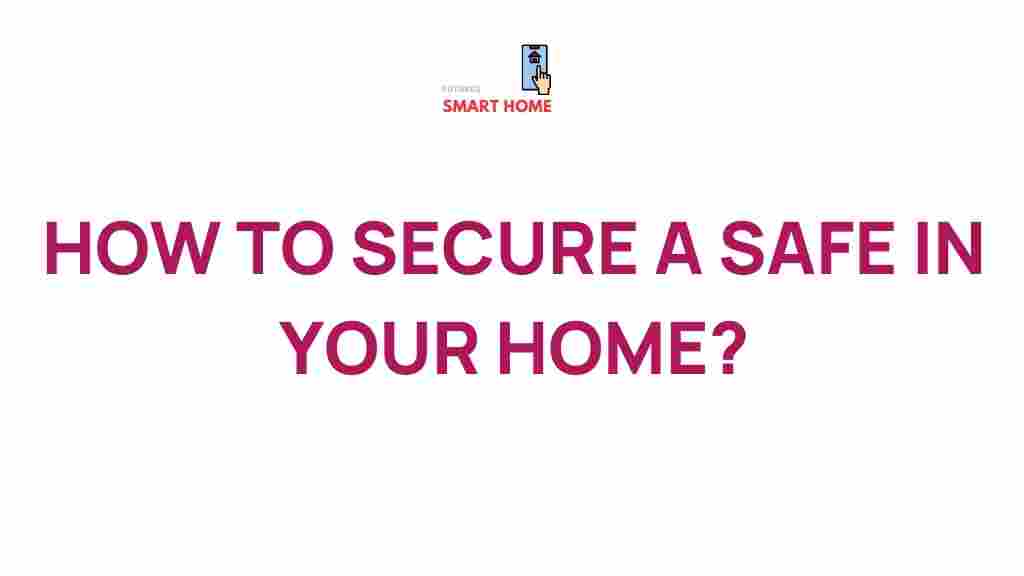Unlocking the Secrets: Expert Tips for Safeguarding Your Home Safe
In a world where security is paramount, understanding how to properly safeguard your home safe is essential. A home safe is not just a container; it is a fortress for your valuables, documents, and cherished memories. With the rise in burglary cases, it’s crucial to arm yourself with expert advice on how to protect your possessions effectively. In this article, we will explore the secrets to securing your home safe, providing you with tips and strategies to enhance your security.
Understanding the Importance of a Home Safe
Before diving into the tips and tricks, let’s discuss why investing in a home safe is vital for the protection of your valuables. A home safe helps in:
- Protecting valuables: Keeps your important items like jewelry, cash, and important documents safe from theft.
- Fire and water protection: Many safes offer resistance against fire and water damage, ensuring your items remain secure even in emergencies.
- Peace of mind: Knowing your valuables are secure gives you the comfort to focus on other aspects of life.
Choosing the Right Home Safe
The first step in safeguarding your home safe is selecting the right one for your needs. Here are some expert tips to consider:
- Determine your storage needs: Assess what items you plan to store. Larger safes are ideal for bulky items, while smaller ones work for documents and jewelry.
- Look for certifications: Ensure your safe has a certification for burglary and fire protection, such as UL (Underwriters Laboratories) ratings.
- Consider the locking mechanism: Choose between key locks, combination locks, or biometric locks based on your preference for security and convenience.
- Size and weight: A heavier safe is harder to steal. Consider bolting it down to a fixed structure.
Where to Place Your Home Safe
Choosing the right location for your home safe is just as crucial as the safe itself. Here are some tips:
- Keep it hidden: Avoid placing your safe in obvious locations, like the master bedroom. Instead, choose less conspicuous areas.
- Secure it to the floor: Bolting your safe to the floor or wall can deter thieves from easily removing it.
- Access control: Ensure that family members who can access the safe are trustworthy. Keep the combination or key secure.
Securing Your Home Safe
Now that you have the right safe and location, it’s time to enhance its security. Here are expert tips on how to safeguard your home safe:
- Use a security system: Install a home security system with cameras and alarms to deter burglars from attempting to break in.
- Regularly change access codes: If your safe has a digital lock, change the code periodically to enhance security.
- Limit knowledge of the safe: Only share information about the safe with trusted individuals. The fewer people who know, the less risk of theft.
- Utilize decoys: Consider placing fake valuables in an easily accessible location to mislead potential intruders.
- Monitor your surroundings: Stay vigilant about your neighborhood and report any suspicious activity to the authorities.
Insurance and Documentation
Another critical aspect of safeguarding your home safe is ensuring your valuables are insured and well-documented. Follow these expert tips:
- Inventory your valuables: Create a detailed inventory of the items you store in your safe, including photographs, receipts, and appraisals.
- Get insurance: Talk to your insurance provider about covering the contents of your safe. This can provide financial protection in case of theft or damage.
- Update your inventory regularly: As you acquire new valuables or dispose of old ones, keep your inventory up to date.
Troubleshooting Common Issues
Even with the best precautions, issues can arise. Here are some common problems and their solutions:
- Forgotten combination: If you forget your safe’s combination, consult the manufacturer for a reset procedure. Many safes have a backdoor for emergencies.
- Battery failure: For electronic locks, regularly check and replace batteries to prevent lockouts.
- Physical damage: If your safe is damaged, contact a professional locksmith or safe technician for repair.
Final Thoughts on Protecting Your Valuables
Safeguarding your home safe is not just about the safe itself; it encompasses a broader security strategy. By following these expert tips, you can enhance the protection of your valuables and gain peace of mind. Remember, your home is your sanctuary, and securing it should be a priority.
For more information on home security systems and tips, check out this detailed guide. Additionally, if you’re looking for professional assistance, consider reaching out to local security experts for tailored advice.
In summary, the secrets to a secure home safe lie in careful planning, strategic placement, and ongoing vigilance. By implementing these expert recommendations, you can effectively safeguard your valuables against burglary and other threats.
This article is in the category Guides & Tutorials and created by FutureSmarthome Team
